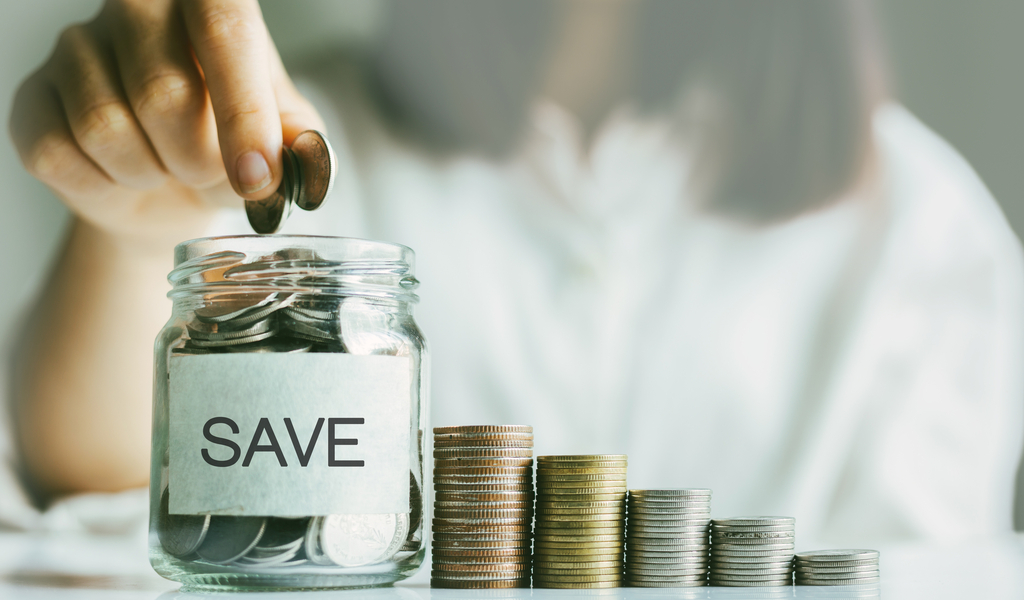In the midst of a global pandemic, on top of facing anxiety and fears over catching a deadly virus, another thing most people are worried about is money. You would think that staying at home without going out would cut down monthly costs, but it’s pretty clear that that’s not true. To top it off, a lot of people are losing jobs or having to stay home from work, which means that their income has taken a hit as well.
If this is the situation you are in, take a deep breath. You, and I, will get through it. But we’re not here to just offer empty affirmations. To help you get through the coronavirus pandemic (and beyond), we’ve gathered some money-saving tips from financial experts that can help you during the lockdown.

1. Use Technology to Your Advantage
One of the biggest pros of online shopping is that you are able to compare prices from different stores from the comfort of your own home – and with the lockdown in place, you have all the time in the world for it! “Shopping around for the best price is really easy when you’re doing it online,” says Andy Webb, author of the Be Clever With Your Cash blog.
But with advancing technology, this task has been made even easier for us. Webb suggests using price comparison sites to seek out the best deals that are available to you. He says such websites and apps can come in handy all the time, whether you are dealing with a global pandemic or not. You could use them for anything from cable to personal trainers!
The money blogger also has another gem of an idea, saying, “An extra feature of these sites is the price history tool. You’ll be able to see if the current price is higher or lower than usual – a handy guide to work out if the lowest price is actually the best price too.”
2. Get Refunds for Services You Can No Longer Use
A lot of us are guilty of having a gym membership that never gets any use – laziness is an ever-present pandemic – but even those who do use these services have been unable to due to the lockdown. Other subscriptions like restaurant clubs, kids groups, etc. are also just sucking money out of your bank account without being of any use.
It’s important that you realize you are eligible for refunds for such services. Plus, you may want to cancel these memberships as a way to reduce costs even after the lockdown is lifted. “Consumers who can no longer use products or services due to the lockdown are fully entitled to cash refunds – no ifs, no buts,” says Iona Bain, founder of the Young Money blog.
“Know your rights and stick up for them,” she adds, “Be polite, patient but persistent, but know that ultimately there’s a last resort that’s got your back,” referring to the Competition and Markets Authority, which is a department that undertakes such issues.
3. Claim All the Benefits Available to You
Governments around the world are making concessions and providing special benefits for people who have been most impacted by the coronavirus pandemic. However, a lot of the policies that may help keep you afloat actually already existed before as well, you just probably didn’t know about them. While governments may provide financial support, you need to claim them!
In the United States, depending on your social and economic status, you may be eligible for any number of government support from employment and support allowance, and jobseekers’ allowance, to statutory sick pay and personal independence payments.
You can even apply for universal credit, which tops up your income depending on what you already earn. (Be careful with this one as universal credit may make you non-eligible for other benefits like tax credits).
Lee Healy, a money adviser from IncomeMax, says that council tax support is another thing you can look into to get grants for energy and water supply. He also says that parents of children who used to receive free meals at schools are also provided grants while they’re forced to stay at home. Healy suggests talking to your local energy supply or schools/colleges to know what they can do for you. Turn2Us, Citizen’s Advice, locally-based credit unions, and other organizations that are providing financial benefits are good starting places to look at.
4. Complete Credit Payments As Soon As Possible
A lot of concessions have been made to delay credit payments such as mortgages, rent, or other forms of debt, but this payment break isn’t going to last forever! That’s why it would be wise to clear up any of these payments as soon as you can to ensure they don’t start piling up. Basically, make sure your molehill doesn’t turn into a mountain!
Sara Williams, the author of the Debt Camel blog, says that following a good budget will save millions from financial doom. She suggests consulting a debt adviser if you are struggling to deal with your finances.
“A good approach is a money detox to reduce spending and simplify your finances – including tracking down unwanted direct debits, cutting utility bills and building a small emergency fund,” she says, “If your main aim is to clear a credit card or catalog debt but you can’t afford large payments, my tip is to set up a standing order for the current minimum payment (or round it up). This clears the card many years sooner and saves a lot of interest.”

5. Have a Solid Rainy-Day Fund
Having a solid savings plan has never been more important than during this very uncertain period of time. If you don’t already have one, it may not be too late to start now if you still have enough money to pay for your needs currently. Budget, cut corners, save – do whatever possible to put away a little bit of money so you can survive those extra few days!
Anna Bowes, from comparison service Savings Champion, also has some advice for those who do already have some savings tucked away. “Those who do have savings but have not reviewed them, or have left cash in their bank, could actually see an increase to their interest if they switch to one of the best paying accounts,” she says.
Bowes says the current pandemic is the perfect example of why one needs to have a rainy-day fund (although it may seem like a full-on storm rather than a rainy day right now). “This situation illustrates the need for everyone to try and put away something,” she says. “After this is over and hopefully your income recovers, remember to keep saving. Just a little bit each month can make a difference. There may be a luxury that you can do without, and save instead.”
6. Don’t Hesitate to Return Items Even if Shops May Be Closed
A lot of us feel at a loss when we seemingly purchase something online and end up receiving something completely different. In such a case, standard return and exchange rules should apply – pandemic or not. Don’t worry about the shops being closed, although it is important to take action as soon as possible. The best way to do this would be to call or write to customer service.
Helen Dewdney, the author of The Complaining Cow blog, advises having some sort of proof of the complaint – either a recording of the call or a written email. “Offer them the option of picking up the item safely and providing you with a replacement or to take it away for a repair. If the item is less than 30 days old then you are entitled to a refund. It would still be prudent to email the company and state that you want the refund,” she says.



